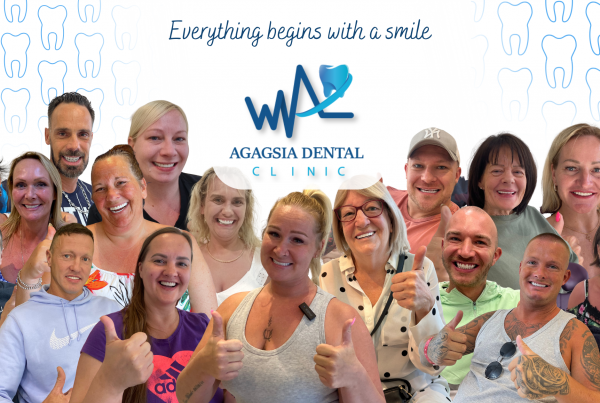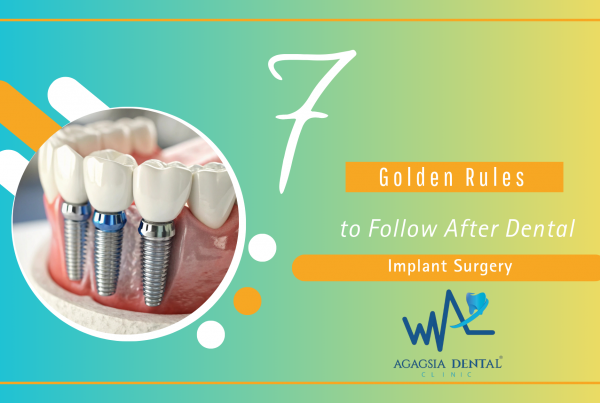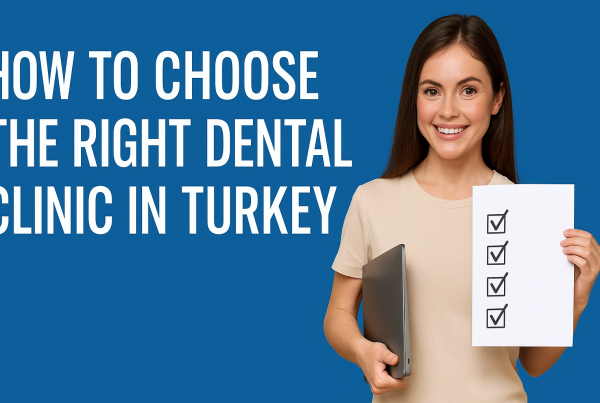Turkey has become one of Europe’s most preferred destinations for dental treatment.
With high-quality standards, affordable prices, experienced dentists, and short waiting times, Turkey offers patients a reliable and efficient alternative to dental care abroad.
This comprehensive guide answers the 21 most frequently asked questions by patients planning dental treatment in Turkey with practical and transparent explanations.
Safety and Choosing the Right Clinic
1) Is dental treatment in Turkey safe?
Yes, dental treatment in licensed and accredited clinics in Turkey is safe.
Safety depends on clinic accreditation, dentist experience, sterilisation standards, and the quality of materials used.
When these elements are transparently documented and shared, the risks are significantly reduced.
2) How can I verify a clinic’s accreditation?
Ask for the clinic’s Health Tourism Authorisation Certificate, official licence number, and any independent inspection reports.
Always check the validity dates and confirm authenticity via official health authorities.
3) How can I check the dentist’s experience?
Review your dentist’s qualifications, postgraduate training, professional memberships, and Before & After photos.
Membership in professional associations such as the Turkish Dental Association (TDB) is a sign of verified expertise.
4) What about the brands and warranty of materials used?
Request written details about the brands and guarantees of all materials especially implants, ceramics, and veneers.
Choosing globally recognised brands ensures long-term availability of replacement parts and warranty support.
Treatment Duration and Planning
5) How long does dental treatment take in Turkey?
Cosmetic procedures such as veneers or Hollywood Smile treatments typically take 4 to 7 days.
Implant procedures are usually completed in two stages:
- Surgical phase: 1–2 days
- Restoration phase: 8–12 weeks later, depending on bone healing.
6) Is a single-visit or two-stage treatment better?
For implants, a two-stage treatment (surgery + healing before final prosthesis) offers better long-term success.
Single-visit plans can be convenient, but they often involve temporary solutions.
7) How long is the implant healing period?
The standard osseointegration period is 8–12 weeks.
If bone grafting or sinus lift is required, it may take longer.
In selected cases, patients can receive a temporary prosthesis for social comfort during healing.
8) What happens in case of an emergency?
If any post-surgery discomfort or swelling occurs, the clinic will provide remote medical support.
When necessary, a local dentist referral can be arranged.
Your warranty and revision policy are crucial in such cases.
Costs and Transparency
9) How much does dental treatment cost in Turkey?
The cost varies depending on the procedure, material choice, laboratory work and any additional surgeries.
Many clinics offer all-inclusive packages (with hotel and transfers), which makes budgeting easier.
10) What’s included in the price — are there any hidden fees?
Always ask for a written quotation that details:
- Number of appointments
- Temporary or permanent prosthesis costs
- Laboratory fees
- Medications and potential surgical add-ons (like bone grafting).
This transparency eliminates hidden costs.
11) How are payments and currency differences managed?
Clinics usually accept credit cards, bank transfers, or cash payments.
To avoid exchange rate fluctuations, ask for a fixed-rate confirmation or advance payment receipt on the booking date.
12) What is the warranty and revision policy?
Warranty is valid when both the manufacturer’s and the clinic’s guarantees are clearly stated in writing.
Ensure the policy covers issues such as fractures, cement failure, or bite adjustment, along with time limits.
Treatment Options and Suitability
13) What’s the difference between All-on-4 and All-on-6?
The All-on-4 system uses four implants ideal for limited bone structure while the All-on-6 provides extra stability through additional implants.
Your dentist will recommend the best option based on bone density and anatomy.
14) Is a Hollywood Smile suitable for everyone?
Not always. Conditions like bruxism, gum disease, or uncontrolled systemic issues must be stabilised first.
Natural results depend on accurate colour mapping, tooth shape design, and gum harmony.
15) Should I choose Zirconium or E.max?
For the front teeth, E.max offers better translucency and aesthetics.
For the back teeth, zirconium provides more strength and durability.
Many treatment plans combine both for optimal function and appearance.
16) Is tooth extraction or bone grafting necessary?
If there is advanced decay or bone loss, extraction and grafting may be required to preserve bone volume and ensure implant success.
This decision is based on a clinical and radiographic evaluation.
Aftercare and Remote Follow-Up
17) What should I pay attention to after implant surgery?
For the first 72 hours, apply cold compress, consume soft foods, and follow the prescribed medication plan.
Avoid smoking, alcohol, and hot drinks during the early recovery phase.
18) How can I prevent peri-implantitis?
Regular professional cleaning, daily plaque control, and using a night guard (if you grind your teeth) reduce risk.
If you experience bleeding, odour, or sensitivity, contact your dentist immediately.
19) How does remote follow-up work?
Post-treatment follow-ups can be conducted via digital photos or short video check-ups.
Your dentist will review bite alignment, oral hygiene, and prosthesis adaptation.
If required, coordination with a local dentist in your country can be arranged.
Travel and Logistics
20) How should I plan my flights, accommodation, and transfers?
Book your flights and hotel in line with your treatment schedule.
Choose accommodation close to the clinic and ensure airport transfers are included for maximum comfort and convenience.
21) What about insurance and cancellation policies?
Travel health insurance offers protection in case of medical complications or cancellations.
Always ask the clinic for written details on their refund and rescheduling policies before confirming your trip.
With high standards, transparent processes, and experienced professionals, Turkey offers one of the most trusted destinations for dental care abroad.
When you carefully manage clinic selection, treatment planning, and aftercare, your experience in Turkey can be both safe and predictable.
These 21 questions aim to help you make an informed decision and achieve a long-lasting, confident smile.





